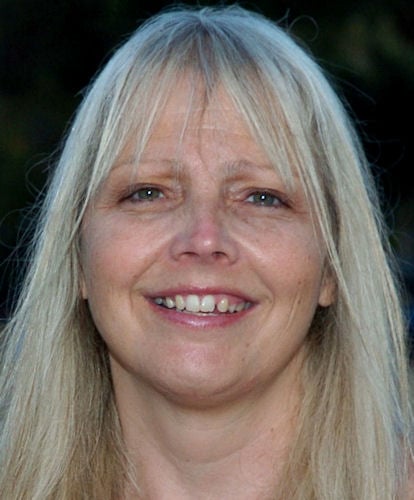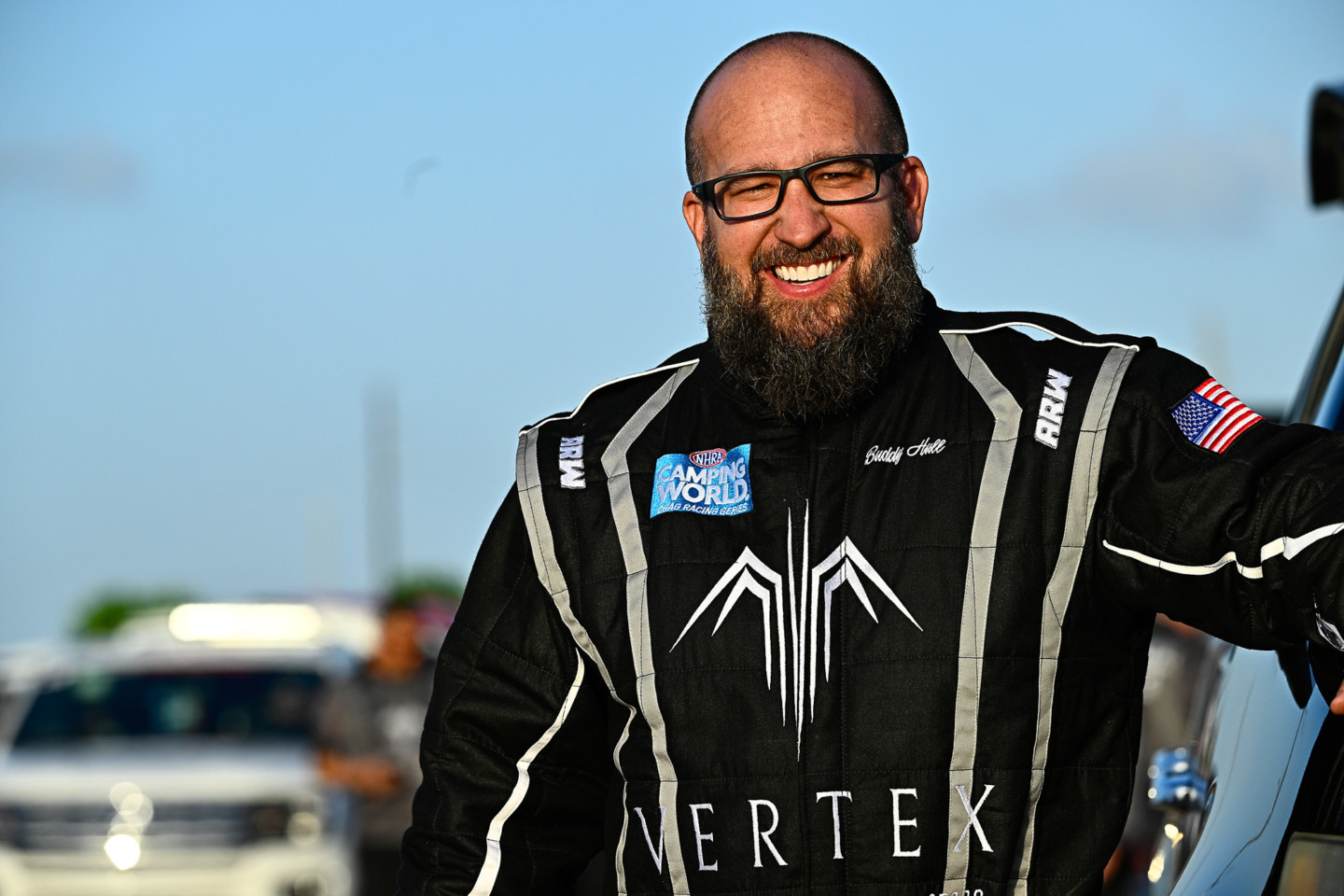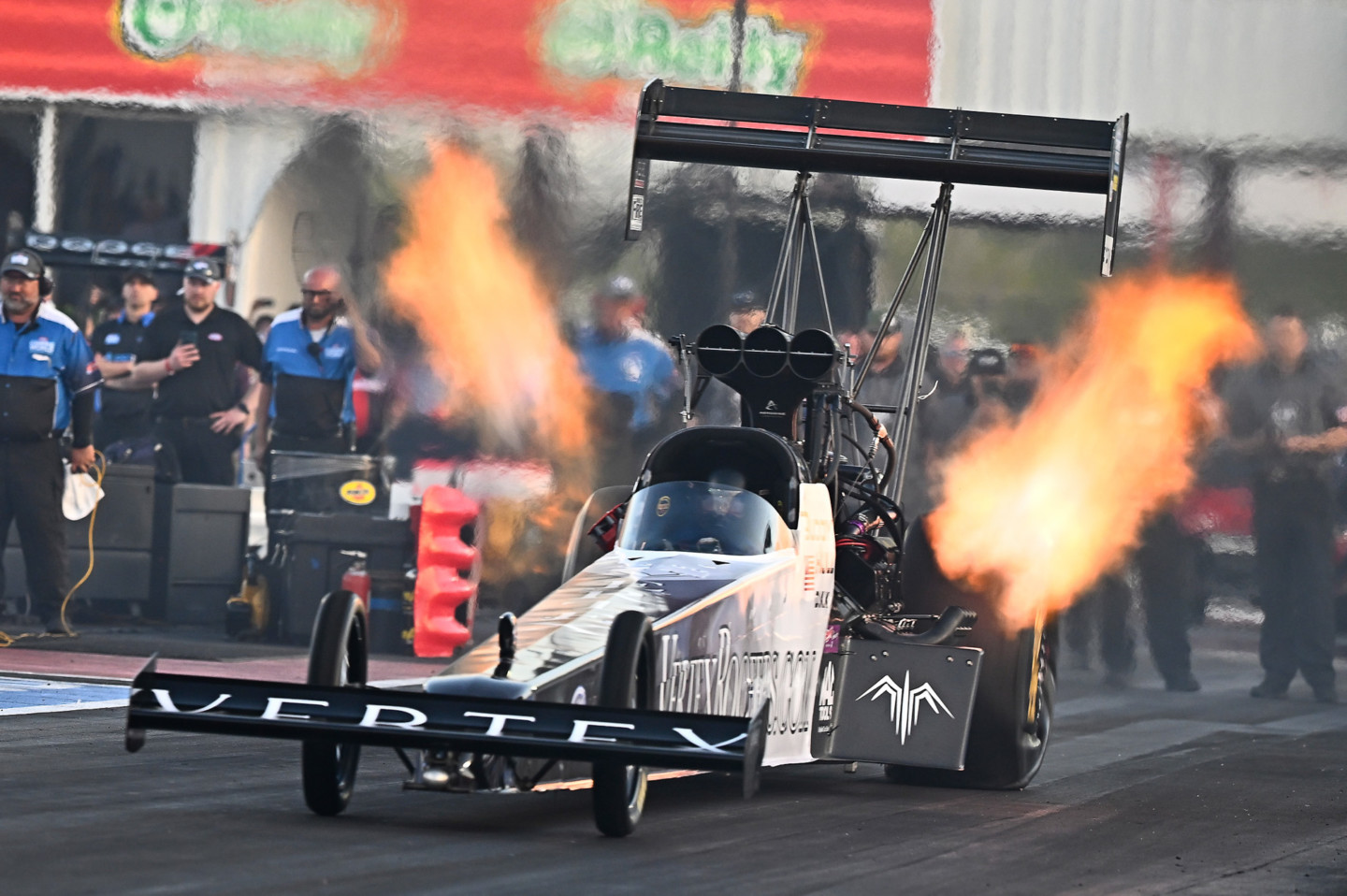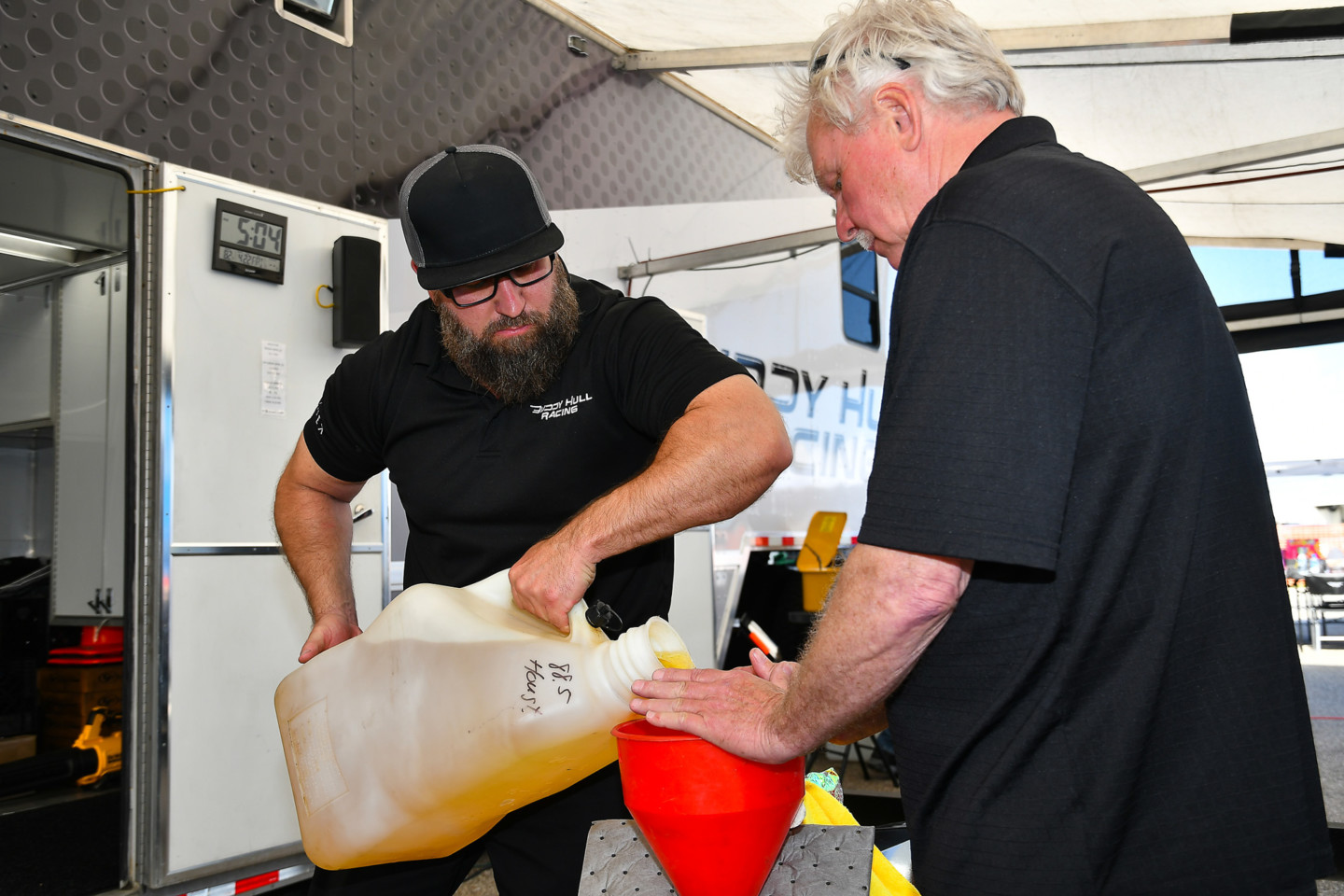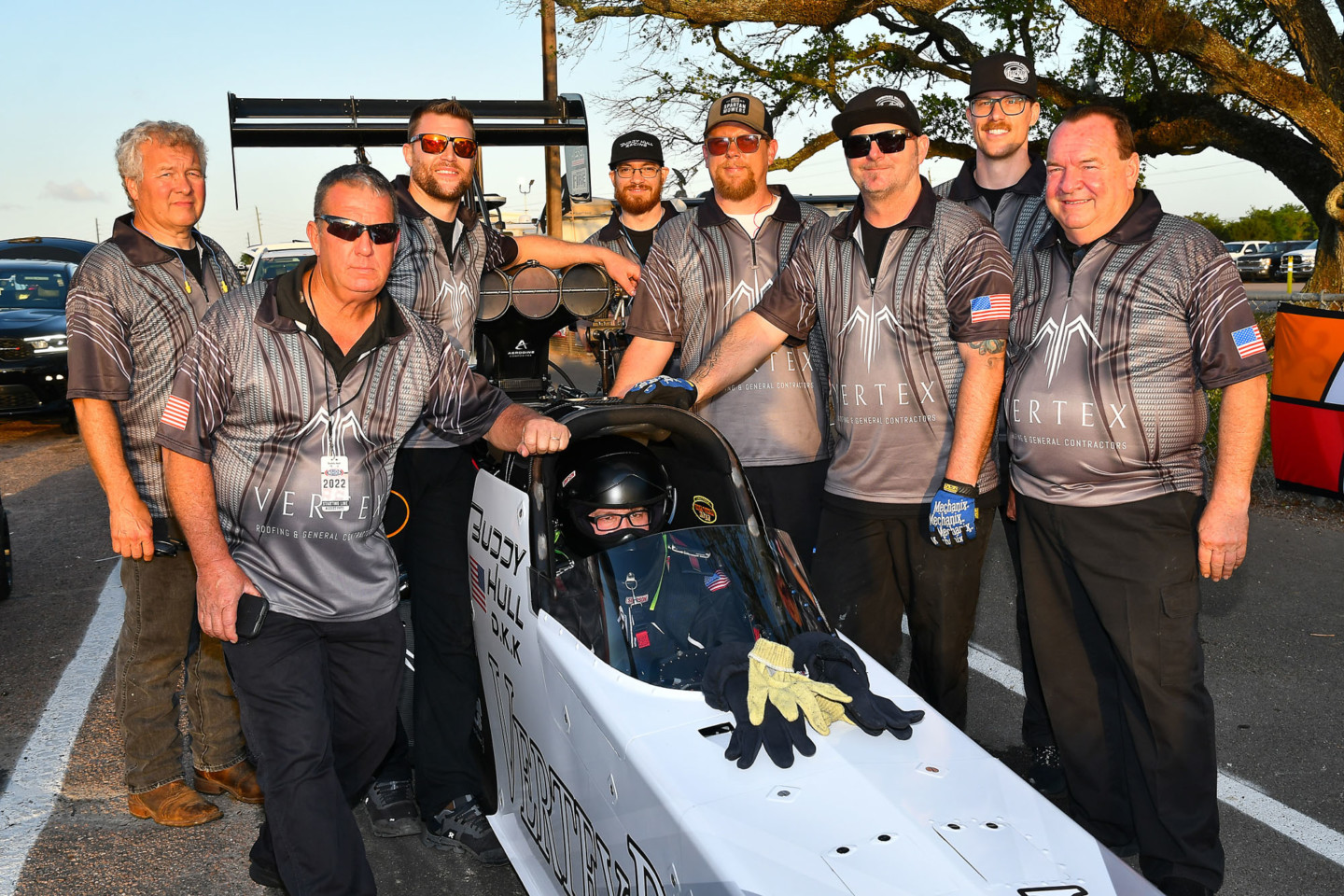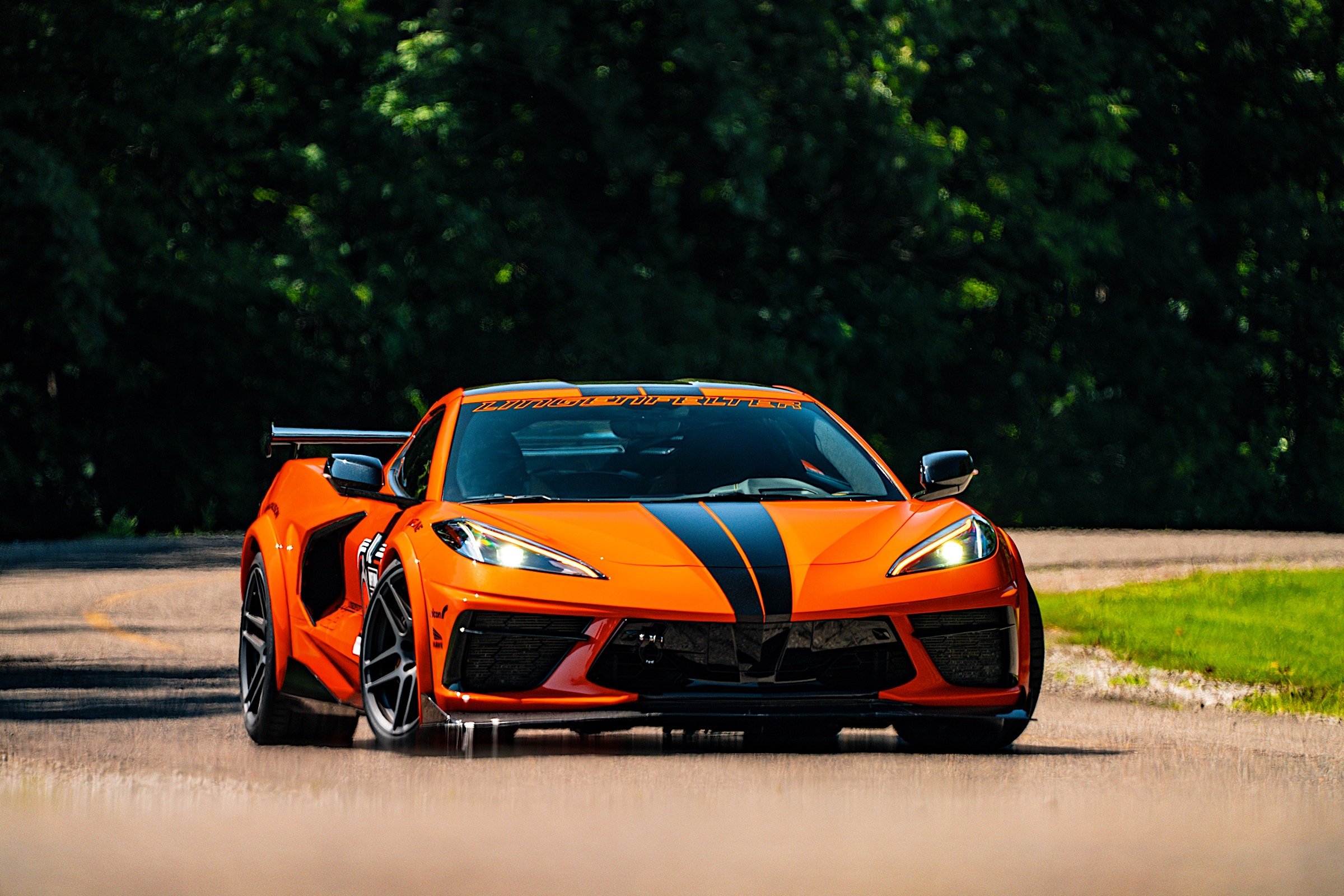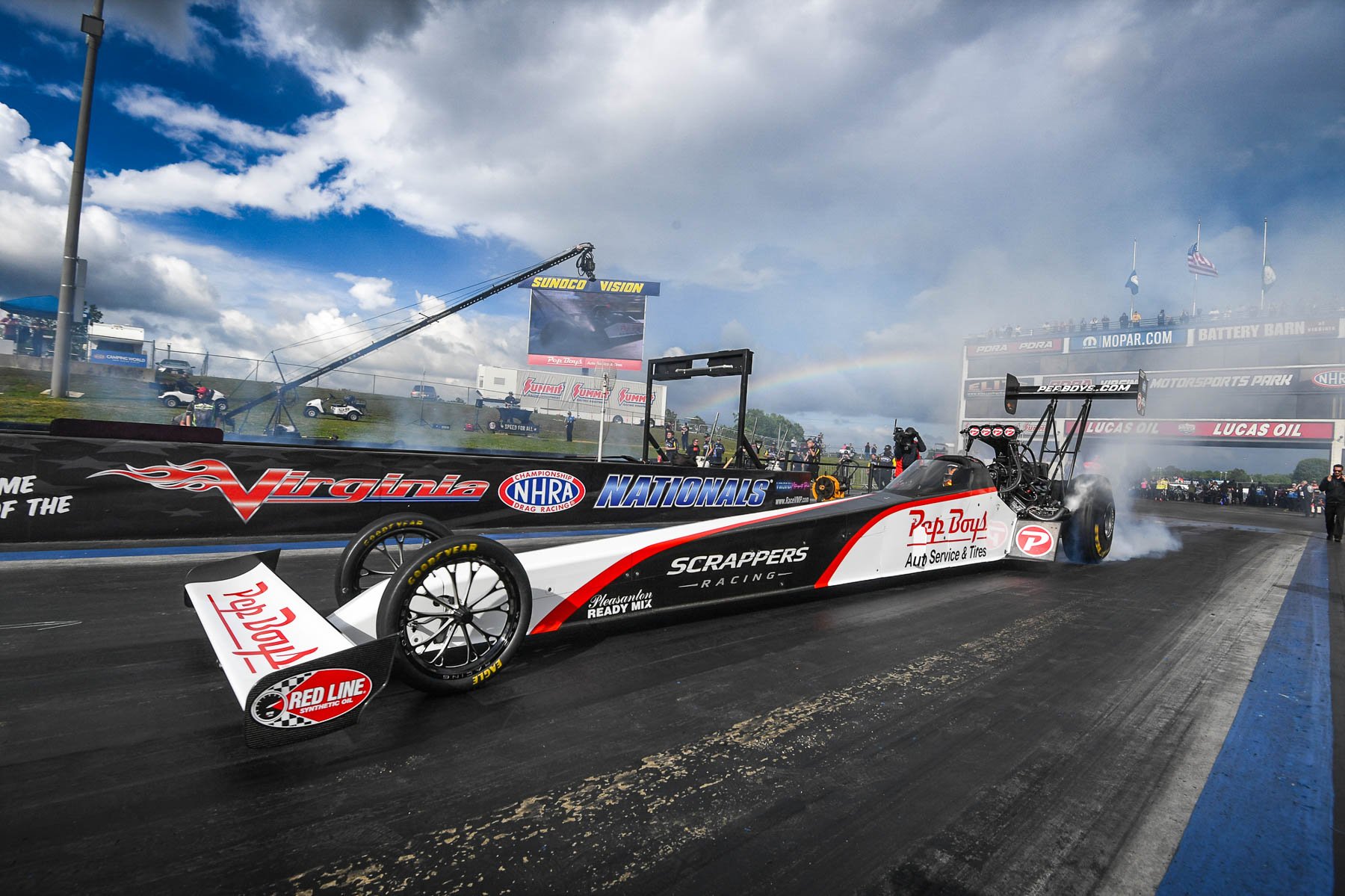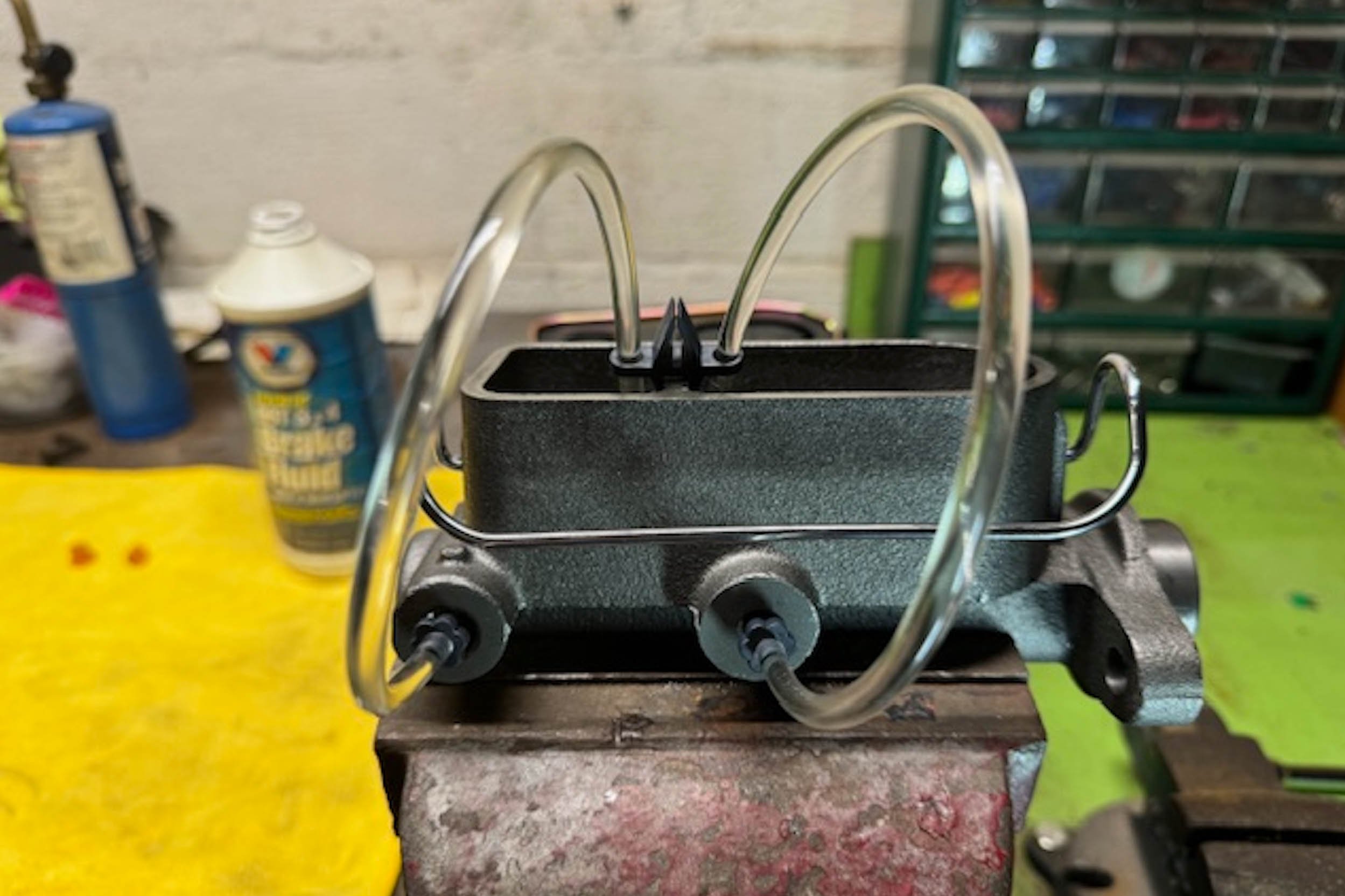Buddy Hull is an alien.
He’s not the kind from outer space. He’s not the kind who barged across the country’s southern border. He’s the kind who stands out from the others.
“Even my family says it: I’m like an alien. I’m really nothing like the rest of my family,” the NHRA Top Fuel owner-driver said. “What I’ve done is completely different, in terms of path and level of successes, than anyone else my family ever. Not one person in my family taught me much about what I do.
“I did. I had to. I didn’t have a choice,” he said, “because I wanted to be better. I just had to do what I saw other successful people do and make it work.
“At about 12 or 13 years old, something came inside of me. And I remember the moment. It’s so weird. I was in my bedroom. I remember the moment I decided that I had to be different. I couldn’t be like everybody else and get where I wanted to be,” Hull said.
“It first transferred over into athletics, and then it transferred over to every other part of my life. Once I decided that, it made it easy to make choices and decisions. I want to say it’s got to be a little bit of God’s work, [but] I’m mostly self-taught. I’m not taking credit away from those people along the way that helped me, but I’m mainly self-taught. I’ve been taught very little. I’ve mainly just figured it out myself.”
I do things because I want to do them, things that I can somehow get others to benefit while I’m doing it. Like everything I do, I take other people’s future to success in my thought process.
That’s his superpower. And he has parlayed it into a Top Fuel career that has seen him go from renting a ride from Terry Haddock to purchasing his own team and using his instinct to decide what steps and schedule his budget can handle.
Hull said he has no intention of showing up at a racetrack to pocket some qualifying cash to get to the next event: “You can’t just get out there. You have to go out there with intentions. If your goal is to qualify, just qualify, you’re defeated. You got beat before you started.”
And just because he’s a new independent team owner, his issue isn’t an adequate parts supply.
“We have more parts than any independent team out here,” Hull said. “But, you know, it’s my life. I overkill everything. It’s what I do. I want to be competitive. I don’t want to be the guy that comes out here and [my opponent] says, ’Oh, we got Buddy first round. OK, all right, no big deal. The car will run a .90.’ No. We want to have a 3.75 to a 3.85 race car that can do it time and time again and be competitive.
“We want to have nice equipment, nice parts, good crew, good tuner,” he said, “and come out here [and have opponents say,] ‘OK. They are to be respected. They have good stuff. We can’t just go up there and take them lightly.’
So Hull isn’t planning to return to the Camping World Drag Racing Series until the Aug. 12-14 Topeka race. He’ll skip the Brainerd race, then return for the U.S. Nationals at Indianapolis and Countdown races at St. Louis, Dallas, and Las Vegas. He said, “By then, we’ll have tons of parts in the trailer. It takes that long to really build up the parts.”
That’s the way he thinks.
“It’s just different, and I’ve always been different,” Hull said.
At home at Frisco, Texas, or at his shop just outside the Dallas-Fort Worth Metroplex at Alvarado, or ready to climb on someone’s roof for his Vertex Roofing and General Contractors company, the former professional bodybuilder and fitness-chain executive is awake and on the go between 3:30 and 5 a.m. every day.
“I immediately go to work. Immediately,” Hull said. “You can never get everything done. It’s physically impossible. When you’re a business owner, that’s really how it is.”
He said, “It’s a mentality of being successful. It encompasses going above and beyond everyone else. That’s what makes successful people successful. You’ve got to work harder.”
The Central Illinois native has gravitated to Texas, a perfect place for him. After all, he describes himself as “All-American rugged” and is fiercely independent.
“I always said that there’s some people who do things to please other people. There’s people, they do things because they want to be a part of something. I can’t say the same for myself. I do things because I want to do them, things that I can somehow get others to benefit while I’m doing it. Like everything I do, I take other people’s future to success in my thought process. Whether it’s my business or whether it’s racing, I always look at people and say, ‘Where can I take them? How far can I take this person with me?’ And I think that’s why I’ve been able to grow my companies, because people see that in me. They see that it’s not just about me. It is about other people…because if it’s not about other people, then why are you a business owner? Why are you doing it?”
We have more parts than any independent team out here. But, you know, it’s my life. I overkill everything. It’s what I do. I want to be competitive.
The concept of pursuing something simply to make money does not drive Hull. He said, “I’m not money-motivated at all. I’m success-motivated. I’m motivated to do the next best thing. Sometimes it involves money, but actually, sometimes it doesn’t. It’s just about doing great, and so many people don’t quite understand that mindset.
“I’ve always believed this,” he said, “and I preach this all the time to my guys: ‘Let’s fall in love with the process of what you’re doing. The rest will always handle itself. Just fall in love with the process, because if you love the process, you’ll be great at what you do. And then once you’re great at what you do, the income follows, the successes follow, the future is there.’ You have to love it.”
So Hull hasn’t learned the tricks of the trades he has mastered. He has learned the trades. And that’s what he is doing with his Top Fuel career. Naturally, he would love to race full time. But he established his roofing and construction for at least a couple of reasons, despite the fact that it’s an artform, and a laborious one, at that: he can help others and it is giving him “more income to be able to live a different life that I wanted to live – be able to afford a Top Fuel dragster and a Nitro Funny Car and do the things I want to do.
“I’m not a fancy guy,” Hull said. “My house isn’t big. I don’t drive a Lamborghini. That’s not my thing. My thing is All-American rugged. This is who I am. This is what I do. I’m a race car driver. I’m a roofer. Like me, love me, hate me. I hope you love me, but sorry, I ain’t changing. That’s who I am.”
And he knows that earning power is going to serve him well when it comes to funding his race team.
“When you get into something like this, you have to understand there’s going to be a lot of unforeseen costs. So first you create a budget for what you know, and then there’s a whole different budget/piggybank for what you didn’t know,” Hull said.
“So what we didn’t know was the cost of everything was going to go up 10- or 15-percent over the course of six to 12 months. It’s just what it is,” he said. “You just be smarter about things. Just because the price of things goes up, it doesn’t necessarily always cost more to do something. You’ve got to be more clever. You’ve got to be more, not necessarily frugal, but smarter with the decisions you make when you’re spending your money. Spend it in areas you need to spend it and then pull back in areas that you don’t need to spend money.
“You have to adjust your budget and just move on. Instead of crying about it, just adjust. It’s just that simple. You don’t adjust your lifestyle to your income. You adjust your income to what you want your lifestyle to be. Whatever you want that to be is what you got to create,” he said.
“That’s not an interesting concept. But some people just don’t grasp that concept. It’s not a special concept. It’s just something we’re not taught in school,” Hull said. “We’re taught in school to go to school, go to college, get a diploma, get a degree. That doesn’t work anymore. It doesn’t work like that. Our country is proving that doesn’t work.”
He said, “Again, I’m a firm believer in just work ethic. When you look at how we’re taught from childhood to the time we graduate from college, we’re not taught that. We’re taught subjects. We’re taught how to do things. We’re not taught how to solve life’s problems, and that’s exactly why so many people have these extremely naive expectations out of how they’re going to be successful. They don’t understand, because what they’re taught will never equal their actual success. It doesn’t work that way.
“I call it social expectations. That’s the unwritten rules, unwritten laws that we all think are real. None of it’s real, by the way. It’s all just a thought,” he said, lamenting that some people “are so linear in their thought they can’t think organically. So they limit themselves.”
That is something Buddy Hull has no intention of doing.
